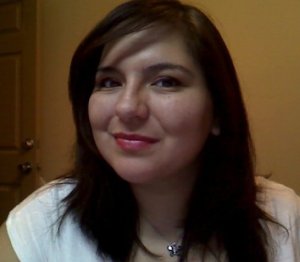
Valerie Juarez joined the Wikimedia Foundation as a full-time intern through the FLOSS Outreach Program for Women, an initiative of the GNOME foundation. With internships available at several organizations, Juarez was immediately intrigued by the bug management/triaging position with Wikimedia, and contacted the project manager: Wikimedia’s Bug Wrangler, Andre Klapper. She received a “very welcoming response” from Klapper, who helped her develop a stellar application for the internship.
As part of the application process, she had to make an initial contribution. Lucky for her (not so much for the bug), Juarez “discovered a bug that blocked UploadWizard when using Internet Explorer”—something she is very proud of.
Juarez, a self-proclaimed “bug wrangler in-training,” applied to the Outreach Program for Women as a way to “shift into a more technical role and to learn new technologies,” she said. Since beginning her internship on January 2, 2013, Juarez has been extremely active, even hosting her first Bug Day on January 29. She explains, “Bug Days are important because it engages the bug management and developer communities, and we work to solve issues, which makes MediaWiki better.” Even though attendance was low, the group was able to triage about 30 reports, and have fun doing it.
She plans to host more Bug Days, triage bug reports, and develop a proposal for streamlining user feedback, such as bug reports, from multiple Wikimedia sources to the correct channels. “Wikimedia has a few feedback channels: Village Pumps for support, Request Tracker for operation issues, OTRS for email responses, and Bugzilla for bug tracking,” Juarez explains. “I will compare and contrast what other open source projects do with what Wikimedia does and make suggestions on changes that could benefit Wikimedia.”
As Juarez sees it, her internship is a win-win for both her and the Foundation. “I think internships like this allow women like me opportunities to grow, gain knowledge, and connect with a community. Organizations benefit by the contributions women provide to the projects themselves and the community.”
Internships like the Outreach Program for Women help reduce the gender imbalance within Wikipedia and the tech industry. She explains, “It’s important to have women participate in MediaWiki, Wikipedia, and open source projects in general because their perspectives are important—and not just women, but men and women of color as well. The absence of these perspectives affects the type of articles that get deleted, promoted, and even created. In MediaWiki and open source in general, a limited perspective can affect which software functionality is added, removed, or even considered.” She adds, “Wikipedia, which is intended for everyone, should not be created by only half of the population.”
Since beginning her internship, Juarez has learned a great deal from her mentors Quim Gil and Andre Klapper, and looks forward to making “meaningful contributions to the community” as she continues. “I hope my project will benefit MediaWiki, Wikimedia, and the community by streamlining the feedback that is received. I also hope to continue to contribute after my internship is complete,” she explains.
Juarez graduated Summa Cum Laude from Lamar University with a Bachelor of Science in Computer Science and a minor in Mathematics in December 2011. In the future she hopes to be “working in a technical position at a job that allows me to positively impact the world socially and technologically. I hope to still be working to attract more people (especially women) to computer science and technology careers.” While busy with her internship, she still finds the time to have a bit of fun in her hometown of Sour Lake, Texas—from playing video games and reading comics such as Batgirl and Wonder Woman to learning to sew a bed for her cat Midnight.
With every day of her internship, Juarez is learning how she can contribute to Wikipedia and Wikimedia and hopes others will join in as well, “I don’t think most people understand that they can contribute and make Wikipedia better. Like me, they don’t think they have anything to offer, but I’m learning that I can help. I hope other people will realize that too.”
Interview and profile by Alice Roberts, Communications Intern

Can you help us translate this article?
In order for this article to reach as many people as possible we would like your help. Can you translate this article to get the message out?
Start translation